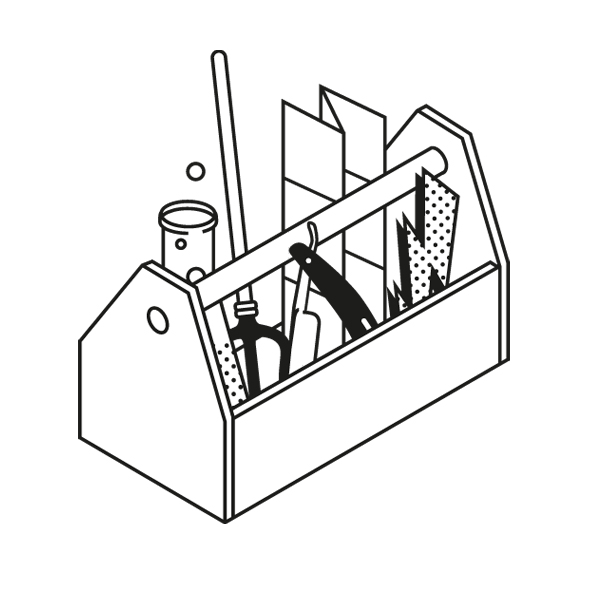Newsletter #6 - The Paradox of Choice and Decision-Making

Hello everyone,
This week's newsletter focuses on the paradox of choice and how to make better decisions. I have had a draft for this post for almost two years but never quite finished it, so I am excited to share my thoughts with you here. While I agree with many of my original points, some changes have occurred. It is always interesting to read things you wrote a long time ago and put yourself back into the shoes of the person who wrote it. I hope you find some valuable insights on the important topic of decision-making
The Paradox of Choice - What is it?
I first heard about the "paradox of choice" in a TED talk by psychologist Barry Schwartz. Schwartz explains that more options are not always better. Instead having too many choices can have a negative effect. This can be counter-intuitive at first, but Schwartz gives multiple reasons why too many choices can be bad for you:
- With infinite choices YOU are making the mistake, but if you are limited by the choices you won't blame yourself for the wrong choice
- Infinite options ==> Extremely high expectations for the outcome
- Few options ==> Lower expectations, higher chance of being positively surprised
- When there are multiple options it becomes easy to imagine the outcome of picking one of the alternatives. This highlights the opportunity cost of our choice and makes us less satisfied with the choice we make.
- Having multiple choices can also lead to analysis paralysis. You end up spending a lot of time trying to make the choice instead of spending it on other things.
- Decision fatigue can fall in. This is the phenomenon where making more decisions leads to you becoming mentally drained thus leading to worse and more difficult decisions.
Too many options can be negative and we might want to avoid a paradox of choices. In today's world, we have more options than ever before. The world offers endless options today. Both globalization and digitalization have only increased the number of options. This is true for our personal and professional lives. It can be harder than ever to decide on a career or what one should do with their free time. If you want to learn more about this concept I recommend the TED talk below by Barry Schwartz on Youtube.
Barry Schwartz TED talk
Possible Solutions
We have now established that the number of choices in today's world can be overwhelming. My potential solution to this problem has multiple parts but mainly it hinges on the idea that there are reversible and irreversible decisions. It is a simple but effective idea. Amazon founder Jeff Bezos suggests that decisions are either one-way or two-way doors. Most decisions are reversible and should be taken quickly. If it is possible to reverse course if it is the wrong choice why spend time worrying about it? These decisions Jeff refers to as two-way doors. The other types of decisions are the irreversible ones. These decisions should be analyzed carefully to make sure the best decision is made. But in general, these are only around 5-10% of decisions. These are one-way doors. Below You can find a short clip where Bezos explains his framework.
A second reason speed in decision-making is key is to give you a competitive advantage. Austin Rief, the founder of the newsletter Morning Brew, said in a conversation with Danny Miranda that you must make decisions on limited information. This is because you can't afford to wait around for certainty. After all, you will not be able to capture the value then. Therefore to be successful you have to make decisions based on the limited information available. Combine this with the earlier fact that most decisions are reversible we should strive to make decisions quickly.
Finally, it is important to be active instead of passive in your decision-making. Don't let circumstances dictate your decisions. For instance regarding resource allocation ensure you spend it on things you value. If you are going to spend a lot of time at work make it an active decision, don't work long hours just because "they expect you to", do it because you want to achieve more. Live a life of active decision-making instead of passive ones and it will become a lot easier to live with your decisions.
Final Takeaway
You can achieve amazing in this world but sometimes you must get out of your own way. Don't sweat the small stuff, we only get so much time to analyze decisions. Make sure you spend it on what matters most. Don't be afraid to make quick decisions on things you can change, but take the time to consider your options for irreversible decisions. I hope this framework for how to think about decision-making helps you make better choices.
If you want to read more about my thoughts on decision-making regarding life and career I would recommend the following two blog posts I wrote: Finding Your Career Path and Navigating Life. If you want to learn more about decision-making I also recommend that you check out the link to Farnam Street below, it has tons of great resources and articles. It is where I originally learned about reversible and irreversible decisions.

I hope you all have a great week!
Oskar Eggert

